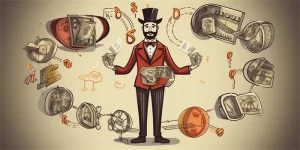Music has the extraordinary power to evoke emotions, transport us back in time, and revive memories. For many of us, cherished musical memories are stored in aging tapes and vinyl records that are at risk of deterioration. However, thanks to advancements in artificial intelligence (AI), preserving these musical treasures has become more accessible than ever before. In this article, we will explore several AI solutions that can digitize and preserve aging tapes and vinyl, ensuring that the magic of music lasts for generations to come.

1. Automatic Noise Reduction
One of the biggest challenges in preserving analog recordings is the presence of background noise, such as hissing, popping, and crackling sounds. AI-powered software, like Adobe Audition and iZotope RX, can automatically remove these unwanted noise artifacts while preserving the original audio quality. By leveraging machine learning algorithms, these tools can differentiate between background noise and music, resulting in cleaner and more enjoyable listening experiences.
2. Audio Restoration
Over time, tapes and vinyl records may suffer from physical damage or degradation, leading to audio distortions. AI algorithms can now restore these damaged recordings by analyzing the audio signals and reconstructing missing or distorted portions. Tools like Steinberg SpectraLayers and CEDAR Cambridge offer advanced audio restoration features, allowing audio engineers to repair and enhance the quality of vintage recordings without compromising their authenticity.
3. Speed and Pitch Correction
With time, analog recordings can experience speed and pitch variations, resulting in warped or off-key playback. AI solutions, such as Celemony Melodyne and Waves Tune Real-Time, utilize pitch detection algorithms to automatically correct pitch inconsistencies and adjust the playback speed. This technology ensures that the digitized recordings retain their original musicality and can be enjoyed without any distracting playback issues.
4. Album Artwork Restoration
Preserving musical memories goes beyond just the audio itself. AI applications can also assist in restoring album artwork and covers that have deteriorated or been damaged over time. Tools like Adobe Photoshop and Corel PaintShop Pro employ image restoration algorithms to repair cracks, tears, and color fading, breathing new life into the visual elements associated with beloved musical collections.
5. Metadata Extraction and Organization
Manually organizing and cataloging a large collection of digitized music can be a daunting task. AI technologies can automate the process of metadata extraction by analyzing audio characteristics, such as song title, artist, album, and genre. Applications like MusicBrainz Picard and Jaikoz use acoustic fingerprinting and machine learning algorithms to accurately identify and tag audio files, simplifying the organization and management of digital music libraries.
6. Virtual Vinyl Experience
For audiophiles who miss the warm sound and nostalgic experience of vinyl records, AI-powered platforms, such as Vinyl Reality and TRAKTOR, offer virtual reality (VR) simulations of vinyl record players. These platforms recreate the tactile and visual aspects of playing vinyl records, allowing users to enjoy the best of both worlds – the convenience of digital music and the charm of vinyl.
7. Online Streaming and Sharing
Digitizing music opens up opportunities for online streaming and sharing. AI-driven platforms like Spotify and YouTube Music employ recommendation systems powered by machine learning to suggest personalized playlists based on individual preferences and listening history. These platforms also enable users to upload and share their digitized music, fostering a community that celebrates and preserves musical memories collectively.
8. FAQ
Q: How accurate are AI algorithms in restoring damaged audio recordings?
A: AI algorithms have achieved remarkable accuracy in restoring damaged audio recordings. However, the success of restoration also depends on the extent of the damage and the quality of the source material. In some cases, manual intervention may still be required to achieve optimal results.
Q: Can AI tools accurately identify and tag obscure or lesser-known music tracks?
A: While AI tools have significantly improved in their ability to identify and tag music, the accuracy may vary for obscure or lesser-known tracks. These algorithms primarily rely on existing databases and user-contributed data, so tracks with limited or fragmented information may be more challenging to identify accurately.
Q: Are there any free AI-powered tools available for preserving music?
A: Yes, several free AI-powered tools are available for preserving music. For example, Audacity is a widely used free audio editing software that incorporates basic noise reduction and audio restoration features. Additionally, platforms like MusicBrainz Picard and YouTube Music offer free functionality for automated metadata extraction and online streaming, respectively.
References
1. Adobe Audition – https://www.adobe.com/products/audition.html
2. iZotope RX – https://www.izotope.com/en/products/rx.html
3. Steinberg SpectraLayers – https://new.steinberg.net/spectralayers/
4. CEDAR Cambridge – https://www.cedaraudio.com/products/cambridge/
5. Celemony Melodyne – https://www.celemony.com/en/melodyne/what-is-melodyne
6. Waves Tune Real-Time – https://www.waves.com/plugins/waves-tune-real-time
7. MusicBrainz Picard – https://picard.musicbrainz.org/
8. Jaikoz – https://www.jthink.net/jaikoz/
9. Vinyl Reality – https://www.vinyl-reality.com/
10. TRAKTOR – https://www.native-instruments.com/en/products/traktor/dj-software/traktor-pro-3/
11. Spotify – https://www.spotify.com/
12. YouTube Music – https://music.youtube.com/








